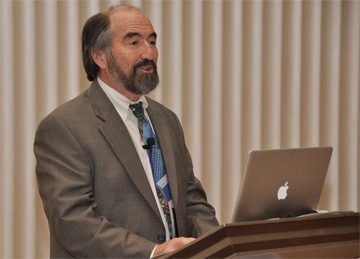In yesterday’s post, I began commenting on a new book: iDisorder: Understanding Our Obsession with Technology and Overcoming Its Hold on Us, by Larry Rosen. Rosen, a professor of psychology, approaches the impact of technology on our lives in light of psychological and brain research. He is mainly concerned with the relationship between digital technology and various sorts of mental dysfunction (narcissism, etc.) But, at one point, Rosen mentions research that suggests the availability of Internet technology does, in effect, weaken our memory:
We have even started to see research showing how our brains have adapted to having so much available information through what researcher Betsy Sparrow of Columbia University calls the “Google Effect.” In a series of four laboratory studies, Professor Sparrow and her colleagues discovered that our constant habit of checking Google for any tidbit of information that strikes our fancy “has trained us to use the Internet as a specialized external memory” (e.g., “What movie did that actress that we just saw star in a few years ago with that guy with the beard?” is a question that can be answered with just a few mouse clicks or smartphone touches). In her studies, Sparrow found that if someone knows they will have future access to information on the Internet or on their computer, they won’t remember information as well as if they are told that it will not be available. But they do recall exactly where to find it quite well, even down to the folder on the computer where the information is stored. (B., Liu, J., & Wegner, D. M. [2011]. Google effects on memory: Cognitive consequences of having information at our fingertips. Science, 333[6043], 776-778.)

I’m sure the Google Effect impacts me. Not only will I decide not to memorize certain kinds of information if it is available on Google, but also I will quickly search for information that I might very well be able to dredge up out of my own consciousness if I only allowed my brain to do its work. Thus, I am not exercising my brain in ways I might if Google didn’t exist. (The same is true for phone numbers. I used to know a couple dozen numbers by heart. Now, since they’re all stored in my phone, I don’t bother to memorize them.)
Yet, I’m not convinced that Google is weakening my mental abilities so much as shaping them. Yes, I don’t rely on my memory as I would in a Google-less world. But, I am much, much more curious about all sorts of things because of Google. Several times a day, I will wonder about something and find the answer through Google. (In what movie have I seen Richard Jenkins? What was Sigourney Weaver’s character called in Paul? Which American novels are considered to be the best of all time? Where is Malta Starthistle found in the U.S.? What are the lyrics of the song “The Good Life”? How tall is Chris Hemsworth? What does Larry Rosen look like? All of these are actual questions I have asked recently and answered through Google.)
Google rewards curiosity, because it makes it easy to find answers. In days gone by, it would have taken a trip to the library and some serious use of microfiche to answer many of the questions I just asked. Since I would rarely have the time for such an effort, I wouldn’t bother to seek the answers. As a result, I would be much less curious than I am today.
So, if it’s true that my memory is exercised less because of Google, it is also true that my curiosity is significantly enhanced. And because I am more curious today than I was twenty years ago, I have learned many new things. Moreover, I am more inclined to wonder about things, to ask questions, to think outside of the box. Sure, I wish my memory were stronger. But, all in all, I’m happy to be more curious than to be better at memorizing data.











